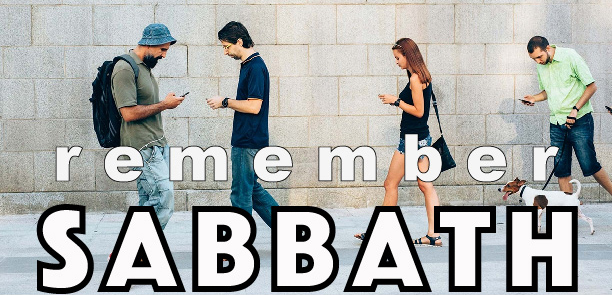
Exodus 20:8-11, Deuteronomy 5:12-15 & Matthew 11:28-30
Sabbath is a tricky concept. We’ve tended to see it as a Jewish thing, not really applicable to us, or, more recently we’ve conflated it with trendy forms of self-care. It’s the only one of the Ten Commandments that we brush off as not really that important. But it’s the longest and most descriptive one. The 10 Words, or Commandments, are recounted twice in the Hebrew Bible (Exodus 20 and Deuteronomy 5) the sabbath is the only commandment to contain significant changes. What’s different isn’t the commandment, but the reason underneath the practice of this weekly day of rest – how we relate to God is directly related to how we relate to each other.
The commandments are given to Moses and the Israelites as they are journeying from Egypt to the land promised by God, on a pilgrimage from slavery to freedom. The other commandments take the people out of slavery; the Sabbath command takes the slavery out of the people. One day in seven, God says, you stop all work. You do this because you are not to be defined by your output. One day in seven everyone rests, and all distinctions that you erect to define your value and measure your worth disappear — old, young, rich, poor, slave, free, citizen, foreigner — you are all simply and completely human beings, alongside one another, all beloved children of God.
This is the hardest lesson to absorb, so we have to do it regularly, God tells us. We have to regularly step out of the mindset and activity of the world around us, the measuring, comparing, competing, striving, producing and consuming. We have to regularly stop doing and practice just being. Unless we regularly stop, we forget that God is God and we are not. We forget that we are creatures — with bodies and minds and hearts that need tending, dependent on the love and care of a creator who is ready to meet us when we stop moving long enough to be met. We forget that we are in this together, alongside everyone else, and we need one another because life isn’t meant to be done alone and against. And human beings that forget their humanity are arguably the most destructive force in the universe. Rest is not a reward to be earned. It’s the starting point. The Jewish day begins at sundown. You don’t start Sabbath after all the work is done. When the sun hits the horizon, you stop to notice the presence of God, who was there all along but who largely went unnoticed. It’s uncomfortable. It’s strange. We are trained to measure the worth of a day by what we accomplish.
Questions for the practice of Examen & Contemplation
- What word, phrase or image grabs your attention in the reading?
- How do you envision rest as the beginning or end of things?
- How do you find rest in God?
- How do you need rest in today’s life and world?
- How does this invitation to a sabbath way of life impact the way we treat each other, what we teach our children, and how we life in the world? How should it?
I wrote adapting in large part a text I found by Kara K. Root online at https://www.workingpreacher.org/preaching.aspx?commentary_id=4093
Download the text study sheet we’ll use in our class discussion at @CAPCOakland HERE.